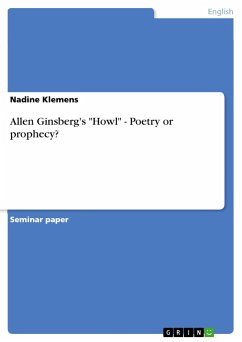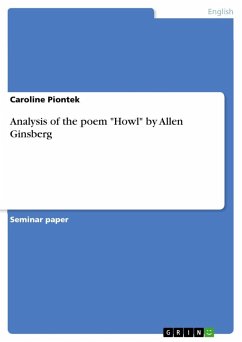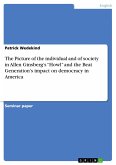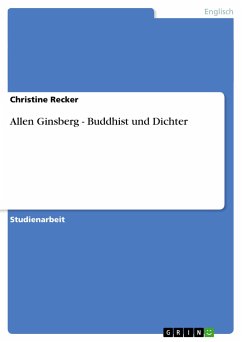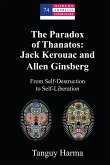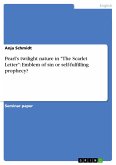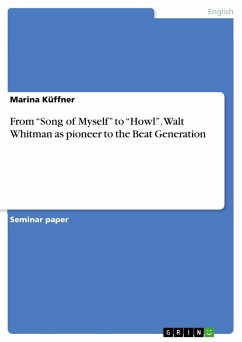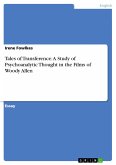Seminar paper from the year 2003 in the subject American Studies - Literature, grade: 1, Technical University of Braunschweig, language: English, abstract: Allen Ginsberg's reputation as a major poet is now secure; he has outlived the other major poets of mid-century with whom he is frequently compared, such as Charles Olson, Robert Lowell, and Frank O'Hara, who with Ginsberg make up a core of writers that revolutionized the writing of American verse in the 1950s. [...] Each of these major writers gave to the main currents of verse his own unique voice and intelligence, but it was Ginsberg especially who seems to have awakened America's youth to the powers of poetry to make stirring prophecies and to reinvigorate the spheres of politics and ideology (Christensen 215). Allen Ginsberg was part of the Beat generation, a group of young authors, among them Lawrence Ferlinghetti, Jack Kerouac, William Burroughs, and John Clellon Holmes, who created a new and unconventional kind of literature. Ginsberg's poem "Howl" is the most popular example of the innovative and provocative writing this group produced. Whereas Robert Lowell and other confessional poets wrote about their lives in a need to confess what was on their minds, Ginsberg went one step further and confessed the sins of a whole generation. "Howl" is a combination of autobiography , apocalyptic vision, catharsis, and prophecy. So what makes Allen Ginsberg and his poetry special? How was it possible that he awakened America's youth and reinvigorated the political spheres? Why is his reputation as a major poet secure? How did he revolutionize poetry? In which way can he be called a prophet? And if he indeed was a prophet of his times, is his literary work consequently poetry or prophecy?In order to scrutinize this question the goals of the Beat generation have to be defined: how was the term 'beat' coined? In the Beat movement, Ginsberg represented the prototype of a Beat writer and later became the guru of America's youth. His tone of voice when reading "Howl" and his literary concept for his poetry illustrate the prophetic character of his work. For that matter, the book analyzes the three parts of "Howl" with regard to its rhythm and imagery.

